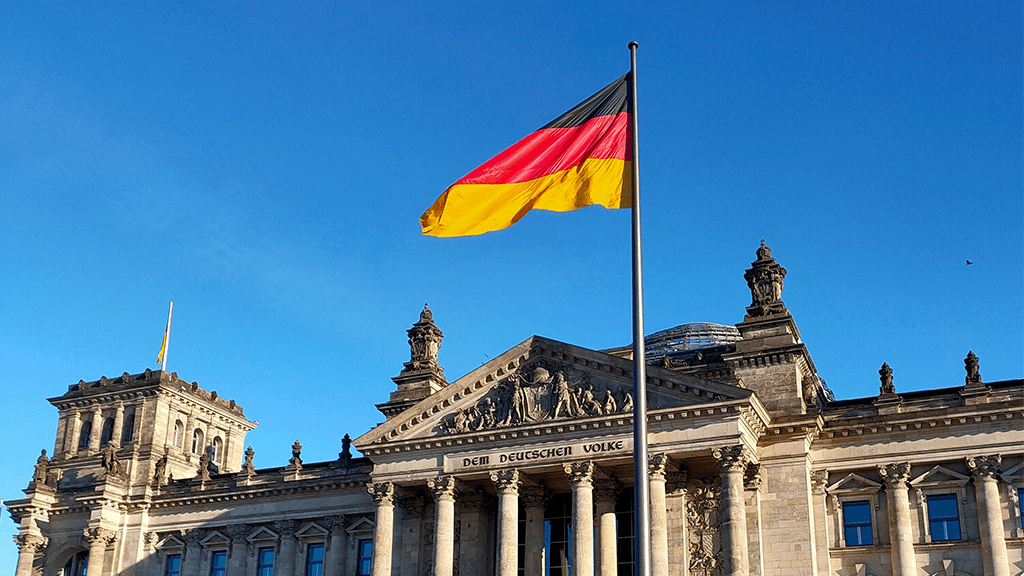
Why Skills-First Leadership Is Replacing the Ivy League Playbook in the C-Suite
The old prestige pyramid—where Ivy League degrees and blue-chip consulting backgrounds paved the way to the CEO seat—is cracking.

April 10, 2025: The far-right Alternative for Germany (AfD) party has recorded significant gains in regional elections, triggering a wave of political instability across the country and intensifying pressure on the federal coalition government. The AfD surged to first place in several eastern districts, including key parts of Thuringia and Saxony, where it secured over 30% of the vote, displacing traditional mainstream parties.
The results mark a turning point in German regional politics, highlighting growing discontent with Berlin’s policies on migration, inflation, energy prices, and EU alignment. The AfD’s campaign focused heavily on anti-immigration rhetoric, opposition to climate regulation, and a narrative of reclaiming national sovereignty from Brussels.
Chancellor Olaf Scholz’s three-party coalition—comprised of the Social Democrats (SPD), Greens, and Free Democrats (FDP)—now faces growing internal tension and public criticism. Each coalition partner has suffered polling losses, with the FDP struggling to maintain relevance. Coalition negotiations in affected regions are expected to be prolonged and contentious, as mainstream parties refuse to collaborate with the AfD while facing mounting electoral pressure from its rise.
Senior officials from both the CDU and SPD have called the AfD’s surge a “democratic alarm signal,” warning that continued erosion of centrist support could threaten the postwar consensus that has kept extremist parties isolated. Civil society groups and watchdog organizations have renewed calls for legal scrutiny of AfD leadership and ties to far-right networks.
At the federal level, the outcome may force the Scholz government to recalibrate its messaging on economic security, public services, and migration enforcement. Some strategists within the SPD and CDU are urging stronger border controls and a reevaluation of asylum procedures to counter the AfD’s populist appeal.
The results also affect upcoming European Parliament elections, where far-right parties are gaining ground across the continent. If replicated nationally, AfD’s momentum could reframe Germany’s role in the EU, climate diplomacy, and internal security cooperation.
A new polling round will follow in the coming weeks, with national parties watching closely for signs of whether the AfD’s regional success can be sustained in broader federal contexts.

The old prestige pyramid—where Ivy League degrees and blue-chip consulting backgrounds paved the way to the CEO seat—is cracking.

Loud leaders once ruled the boardroom. Charisma was currency. Big talk drove big valuations.

But the CEOs who make history in downturns aren’t the ones with the deepest cuts

Companies invest millions in leadership development, yet many of their best executives leave within a few years. Why?

The most successful business leaders don’t just identify gaps in the market; they anticipate future needs before anyone else.

With technological advancements, shifting consumer expectations, and global interconnectedness, the role of business leaders

Following a distinguished Law Enforcement career Joe McGee founded The Securitatem Group to provide contemporary global operational specialist security and specialist security training products and services for private clients, corporate organisations, and Government bodies. They deliver a wide range of services, including complete end-to-end protection packages, close protection, residential security, protection drivers, and online and physical installations. They provide covert and overt investigations and specialist surveillance services with a Broad range of weapons and tactical-based training, including conflict management, risk and threat management, tactical training, tactical medicine, and command and control training.

Jay Wright, CEO and Co-Owner of Virgin Wines infectious energy, enthusiasm, passion and drive has been instrumental in creating an environment that encourages talent to thrive and a culture that puts the customer at the very heart of every decision-making process.

Fabio de Concilio is the visionary CEO & Chairman of the Board at Farmacosmo, a leading organization dedicated to mental health and community support services. With a deep commitment to identifying and meeting customer needs, Fabio ensures that high standards are maintained across the board.

Character Determines Destiny – so said Aristotle. And David CM Carter believes that more than anything else. For David, it has been numerous years of research into codifying Entelechy Academy’s 54 character qualities that underpin everything he stands for as a leader and teacher.


Leave us a message
Subscribe
Fill the form our team will contact you
Advertise with us
Fill the form our team will contact you